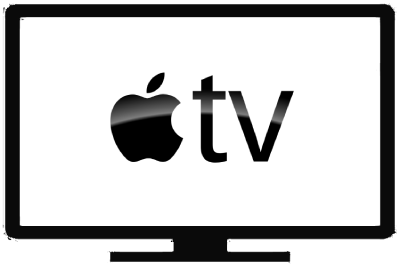In the face of on-going police brutality against African Americans and the disproportionate impact of the Covid-19 epidemic on people of color, the United States has reached a tipping point in relation to racism, policing and public health. But what does it look like to adopt a “public health” approach to safety, policing, and economic development? In February, 2020, Laura visited Newark, New Jersey, to look at one city where decades of police reform efforts failed to stop violence and crime. Now, at the invitation of Mayor Ras Baraka, Aqeela Sherrills, a former gang-truce broker in Los Angeles, heads up the Newark Community Street Team which leverages residents’ relationships to prevent violence before it starts.
Flanders talks with Sherrills and other former gang members turned peace-keepers about how they address abuse and transform trauma for themselves and others, and to the city’s Public Safety Director about what it’s taken to build the team’s partnership with police. This episode offers a timely glimpse of what it looks like when more responsibility for public safety is put in public hands and opens up the conversation about “defunding the police” with a concrete example of what appears to be working in one city.
UPDATE: In the entire year of 2020, Newark police did not fire a single shot, which makes a great case for the Newark model. Read more about it here.
“This shift that’s taking place as the result of the Newark Community Street Team is profound, and it shouldn’t be in any way underestimated the impact it can have, if it’s successful in a place like Newark, in terms of being replicated around the world and around the country.”
— Dax-Devlon Ross
In This Episode
- Aqeela Sherrills, NCST Director
- Daamin Durden, NCST Director of Operations
- Breaunna McCray, NCST Safe Passage Team
- Malik Latimore, High Risk Intervention Team
- Patrice Walker, NCST Member
- Anthony Ambrose, Newark Public Safety Director
- Dax-Devlon Ross, investigative reporter at Type Investigations
- Vonda McPherson, Owner of Vonda’s Kitchen
Subscribe to our podcast and become a Patreon partner here for exclusive content and uncut interviews, including our Story Behind the Story series. This edition features LFShow team members Matt Colaciello, Creative Director, and Jeremiah Cothren, Communications Director in conversation discussing this week’s episode, “Putting Public Safety in Public Hands: The Newark Model”.
Where to Watch
You can watch this episode on your local WORLD channel at 11:30 am ET on Sunday, September 6.
Click here to find a schedule for your local PBS station.
Click here to watch online on YouTube. The episode will be made available at 11:30 am ET on Sunday, September 6.
Listen
Transcript
Aqeela Sherrills: Safety is about quality of life. We say that that safety is not only the absence of violence you know it’s the presence of well-being and the infrastructure to support people in their respective healing journey.
Patrice Walker: In order to get people trust, you have to let them know or let them see that you care about them.
Breaunna McCray: Our street team is more like a family to me. We’re really trying to make a difference in our community.
Dax-Devlon Ross: The only way people in Newark are gonna get justice is if they have a voice.
Laura Flanders: Public safety – how do you define it? And what role do you see for the public in stopping violence, shaping the economy of a place, and transforming trauma into public health? The people of the South Ward of Newark, New Jersey have seen the worst. Over-policing, under-representation, lack of opportunity… Sometimes around here, the sound of police sirens seems never to stop. If this place, the South Ward, is to feel safe to the people who live here, what’s that gonna take? In February 2020, I spent much of the month with the members of the Newark Community Street Team, an organization whose model of public engagement, seems all the more relevant in the face of ongoing police brutality and urgent demands for a new approach.
– What do we want?
– Justice!
– When do we want it?
– Now! Daamin Durden is the director of operations for the Newark Community Street Team. He gave me a tour of his neighborhood, highlighting the socio-economic struggles he grew up with.
Daamin Durden: So I actually used to live on the corner here. I remember maybe last year, a young man was killed right there and this is right down from the brand new precinct mind you. So I used to live here on the second floor.
Laura: What are the options for a young person growing up around here?
Daamin: There’s not many options that they have, outside of joining those street organizations. It’s kind of like inevitable for them.
Laura: And how do you explain that, what do you think happened here?
Daamin: I think much of the economic structure and the tax base left to go somewhere else. So for 60 years, there was just no development taking place.
Laura: Next I sat down with Breaunna McCray, a coordinator for the Newark Community Street Team’s Safe Passage program, to talk about her part, from growing up in Newark, South Ward to working for the team today.
Tell me about growing up. Tell me some of the fabulous things about it and then some of the more difficult times.
Breaunna: My childhood in Newark, I used to like eat and ring, the movies, I mean, we had a good childhood. We would go to parties and have fun. It might be a fight but nobody’s dying. Like now it’s different, way different.
Laura: What are the kids that age going through now?
Breaunna: Selling drugs, killing people, shootings every day.
Laura: What’s that about?
Breaunna: Youth organizations, just going at it with another youth organization.
Laura: Some people would call them gangs.
Breaunna: Yeah.
Laura: You don’t use that word.
Breaunna: No, I use youth organization.
Laura: You were in one of those organizations?
Breaunna: Ah, yes I was. As growing up, yeah I was. I was 15.
Laura: What did it give you that you were looking for?
Breaunna: It gave me like love. I felt, I thought it’s love. Love and just somebody being there for you.
Malik Latimore: I’m Malik Latimore, a resident of, a lifelong resident of Newark, New Jersey. 50 years old. Formerly incarcerated. I did, my last incarceration I did 15 years, 14 and a half years in prison. When I initially came home as a youth, I reached out to individuals for employment. And it was like, you ex-felon, no you did time, you don’t have a work experience, you don’t have a work history, you don’t have this, that, and it was like really a push back to the streets. Like you know every avenue I went, it seemed there was a barrier, and you know the only thing that was inviting was, unfortunately was crime.
Breaunna: I don’t wish I wasn’t in the organization, but sometimes I wish I could change a little of how I went about it, cause I don’t want a lot of things. A lot of things. I almost lost my life.
Laura: Talk about that.
Breaunna: I was outside, it was the summertime, it was like a cookout/block party type thing. We’re chilling. A car ride up, I see a guy run out the back yard and he started shooting towards where I was at. He wasn’t shooting for me, but the person that I was sitting next to, he was shooting at them. The first gun shot went off. It hit me, I felt. Minutes later, more gun shots went off, and it hit him, but they continued to hit him. Me I played dead. And then I’m like, “Breaunna, look over.” I looked over at my best friend, he was dying. I lost a lot of blood. My lungs collapsed. I had to learn how to walk again.
Laura: What do you want for Newark, what do you want for this–
Breaunna: Oh the violence to stop. Everybody just coming together. Tired of losing friends. I just want the violence to stop.
Laura: To understand the context of that violence better, here and across the country, it’s important to look back to the Newark rebellion of 1967.
Reporter: Our worst race riots since those two years ago in the Watts section of Los Angeles, rock New Jersey’s largest city, Newark, for five consecutive days and nights. At least 24 persons are killed. More than 1,800 wounded, some 1,400 arrested. Two days after its beginning, police are augmented by National Guardsmen. Snipers make the streets a battlefield. Governor Hughes terms the rioting open rebellion, just like wartime.
Dax: My name is Dax Devlon Ross, I’m a investigative reporter with Type Investigations. 1967 happens, a year later this huge report comes out. The War on Drugs begins in the 1970s, 1980s…
Nixon: America’s public enemy number one in the United States is drug abuse. In order to fight and defeat this enemy, it is necessary to wage a new all-out offensive.
Dax: You start to see this you know this police department that is beginning to just be able to operate with impunity in the community. And then in 1991, we encountered the beating of Rodney King. This is grainy footage that we kind of look at it as this historical artifact is a significant turning point and is actually the beginnings of a movement to create some kind of tool at the federal level to address police accountability and police misconduct.
Laura: Over the years, different administrations have taken different approaches to crime and violence in Newark, from flooding the streets with cops and national guard, to racial profiling and a federal consent decree that put local policing under the oversight of the federal government. In 2014, Mayor Ras Baraka came into office pledging a different approach.
Ras Baraka: Where we are now and where we are when the DOJ first came in and did the investigation and found that Newark was having deep issues around violating people’s constitutional rights. 75% unwarranted patterns of racial discrimination and excessive use of force. Our work with trying to make sure we uphold people’s constitutional rights and improve the relationship with the community here has also equaled a reduction in crime. In fact, we have some of the lowest numbers of murders in this city since 1961.
Dax: So I had an opportunity to sit down with the mayor. And one of the things he was you know he pointed out to me was that he saw the the consent decree as the floor not the ceiling. And by that, he meant that the consent decree gave cover for a number of other projects and programs and pilots even and the Newark Community Street Team is part of these initiatives and these innovations that were designed to bring community voice into the strategy.
Laura: A lot of places have experimented with giving the public some kind of oversight over police. But here in Newark, New Jersey, they’re taking that one step further. The Newark Community Street Team, composed almost entirely of lifelong residents, uses its social networks as friends and family to convene conversations with police about public safety, and now they’re not only meeting regularly with the police forces, they’re helping to train them, and they’re helping to determine how the police and the public interact. To lead this community-based strategy, Mayor Baraka brought in Aqeela Sherrills, an organizer from Watts, South Central LA. He was one of those who brokered a landmark truce between rival gangs in that city in 1992.
Aqeela: I am originally from Los Angeles in a small community called Watts that has a big reputation in history. I grew up in the Jordan Downs housing projects there, the youngest of 10 kids. Participated in what many social justice activists called the longest running war in the history of this country, which has been urban street gang wars. Fortunately, came out of it and played a significant role, and I’ve been bringing an end to of the violence in my community.
Laura: You became a broker of a peace accord, can you talk about that?
Aqeela: This was LA, 88-89,’ this was a height of the wars, 1100 murders a year in the city, 1500 in the county. This meeting was historic. 1,500 gang members from all across the city, came together. We organized a peace treaty between the four housing projects that changed the quality of life in that community.
Laura: How did you, coming out of that experience, come to be doing this work?
Aqeela: I came to be in Newark through Mayor Ras Baraka, who’s been a good friend for close to 25 years. He called me up and was like, “Hey can you bring some of the brothers out here to educate these young cats on what you guys have done with Grape Street.
Laura: Your work is all about localism, but you’re from LA, do you find any resistance to your presence, doing this work here in New Jersey?
Aqeela: Yes, when I first got here, people was like, “The mayor brought this guy from Cali in here? Get out of here!” Had all types of challenges and stuff. However, the rebellion in Watts and in Newark, they started with law enforcement. Over-policing communities, the excessive force issues, it’s been going on for over a hundred years, and we still haven’t figured out how to resolve it, until now. Our work is essentially about shifting like the community’s perception of so-called gang members, engaging them in the public safety process, and so our analysis was that, in many cases we know all of these individuals, but yet we have we don’t have the tools and the skills and sometimes the resources to be able to bail them out of a situation when they’re in crisis.
Laura: It’s not easy to build healthy relations across the policing divide. The police and the policed don’t easily get along. I met with Newark Public Safety director Anthony Ambrose. So what is the job of the Public Safety Officer, as you understand it?
Anthony Ambrose: My job is to supervise police officers, firefighters and an office of emergency management personnel One of the key positions here is crime. Crime has always been a problem here in the city, and I have now the opportunity now I’ve been working with Mayor Baraka for the last five years.
Laura: And the difference?
Anthony Ambrose: Everybody thinks that crime comes from you need more cops, but you know he comes on board, he looks at they’re social ills that create crime, there’s education, there’s poverty, there’s unemployment, and he looks at that. But I think one of our biggest strategy, is bringing the community on board with us.
Laura: You work with the Newark Community Street Team, had you ever worked with any organization like that before, and what is distinctive about that experience so far?
Anthony Ambrose: When you talk about Newark Community Street Team you know when it was brought in by Mayor Baraka in 2015, people frowned upon it. You know there’s gonna be a group of people that were former gang members, they were involved, they were incarcerated, and you know they’re a breath of fresh air. If we have some type of violence happen in an area, we call upon them because even though we’re building trust with the community, there’s still, they don’t have total trust in the police where they can go into an area and they’re trained in conflict resolution. They’re trained in de-escalation. They’re in the trenches with us.
Dax: This shift that’s taking place as a result of the Newark Community Street Team, but a number of other things that are happening in the community, but specifically something like a street team, it’s profound and it shouldn’t be in any way kind of underestimated the impact that it can have if it’s successful in a place like Newark in terms of being able to be replicated around the world and around the country.
Laura: We caught up with the Street Team in the streets on one of their weekly outreach walks.
Daamin: All right, we’re gonna take our time y’all. We’re gonna do what we do every week, you know greet the people, make sure you know we’re good, be pleasant but you know be on point. We did have a shooting a week or so ago over here, and so we just familiarize in this community with our services that we offer and other things going on in the community as information. We can actually start with these stalls right here and speak with them. DJ, help us with that pace you kind of keep pace with the other side.
Patrice: Our community walks are basically to get in touch with the community. We’re out here to try to stop violence and how we do that is we engage in and to getting to know that person, to get to know somewhat of a life they’ve been through and try to interact or try to be in their place.
Daamin: You know it’s always a good night making it home back safely to our families. I pray that walking did well, we’ll pray we all make home safely. Just thank y’all.
Laura: After our initial drive around the South Ward with Daamin Durden, I joined him in the NCST office to get the run down on the work and programs the group facilitates. The community walks are just one of the things you all do. Can you go down the list?
Daamin: Okay, well we actually do what’s called Safe Passage. That’s our entry level work in the community where we can be in and around schools making sure children get there safely and return home safely.
Breaunna: Safe Passage is me being at the school making sure kids get back and forth into the school and out the school. This week, how can I say there was a shooting by my school. My teammate, he works at North Star. He’s amazing. He was outside. He got all the kids off the bus stop back in the school.
Daamin: We have a high risk intervention team where we’re mediating conflicts in the community, individual conflicts as well as group conflicts. And the last thing we have is our victim services. Where we offer those that are survivors of crime wraparound services. I think the Safe Passage program, that we call our entry-level program, introduces us to the community. Unless the community see us doing a service that everybody respects, everybody love children, nobody thinks the children should be harmed. So that gives us a way into the community.
Malik: What I do, I go into the communities, and I try to prevent crimes from happening beforehand, and I think that me being in this position has helped so many others because again I’ve been a person that’s been committing crimes or being accused of committing crimes for years. So for law enforcement or whoever to see me change my life, and then the people in the community to actually see me change my life, it’s been a real uptick in the people that’s who are doing wrong, I’m gonna change their lives. So I think that’s was really positive for me to see.
Laura: Now you said that some of the people who are your team workers have been part of the problem. You use the third person but don’t you count yourself in that number?
Daamin: Definitely, definitely. I actually was convicted of a crime and sentenced to life in prison. I actually served 22 years in prison, and in there, kinda start doing some introspection and wanting to change my life and decided when I got out I was gonna do some things different. And lo and behold, our wonderful mayor was elected, Mayor Ras Baraka, and he started the Newark Community Street Team, and after training and working, I came in as an outreach worker and did Safe Passage and everything. And, you know, just was able to begin to serve my community again.
Aqeela: I grew up in a war zone and where it was a part of our rites of passage to want to go to prison. And I thought that I would be dead or in prison by 21, 22.
Laura: And what happened instead?
Aqeela: I went to college. I was always a pretty good student. I graduated from Jordan High School, got accepted to Cal State Northridge. I had a transformative experience there. I met a woman who held space for me in a way that allowed me to talk about being sexually abused as a kid which created a tremendous amount of challenge in my life, just navigating that not knowing how it was actually affecting me, right? But that transformative moment was the thing that actually changed my entire life and put me on this particular path. I realized that I never questioned the violence that I witnessed in the neighborhood because it ultimately meant to question the violence that I experienced in my own household. And I didn’t have language for it, I didn’t have the courage to confront a perpetrator, but I had a professor, Johnny Scott, who grew up actually in Watts. He really impressed upon me the importance of reading and and knowing my history. “The Evidence of Things Not Seen” by James Baldwin was a life changer. You know Claude Brown, “Manchild in the Promised Land,” and those things politicized me, they gave me courage, they gave me voice, and I decided that maybe we could hatch two birds in one sit in terms of exposing my secret you know as a gift to give to those who have had a similar experience and then try to stop the killing that was happening in that neighborhood. Because I realized that, that there was a correlation. You know there are no outlets in the neighborhood for people to talk about the sexual, physical and psychological abuse that they suffered in their own personal life. And it’s the root of a lot of the violence that we see happening in the neighborhood. And our cries you know they fall on deaf ears because we’ve gotten labeled as gang members. And you know that label, we didn’t give it to ourselves. It was meant to desensitize to public. It was meant to dehumanize the people behind it. And so, therefore, we spent decades trying to change that narrative so that people can actually see our humanity and invest in our healing.
Laura: Newark is seeing an influx of capital and a wave of development across the city these days. But with development often comes displacement. Getting more wealth into local hands is another part of building safety in the Street Team model. To discuss this, Aqeela and I headed over to Vonda’s Kitchen, a locally-owned local favorite.
Aqeela: This is one of my favorite food places on the planet.
Laura: All right, let’s go.
Aqeela: Yes.
Vonda McPherson: I’m chef Vonda McPherson and the owner of Vonda Case Catering Events and also Vonda’s Kitchen. I was born here in Newark, and it’s nice to have a wonderful business here where you have such a supportive community. With Newark, the wonderful thing is that we’ve been through a tough time. The struggle has been hard, and I just don’t wanna see a situation where we take in so much of new developers and things and they build these communities that don’t necessarily include workers. And we just wanna make sure, as you come in, to be a part, but we don’t want you to own our city.
Laura: All right, this is unbelievably good.
Aqeela: Yes, Umhh.
Laura: You’re working on creating an investment fund. What’s it called and how will it operate?
Aqeela: It’s called the Shared Equity Community Fund, and it’s essentially a fund to organize people’s capital so that we can actually do some collective buying and collective bargaining in the community. So it’s like, how do we help people like kind of acquire wealth? You know and then how to utilize their wealth collectively to improve the quality of life of the individuals and the communities in which they live? So ultimately, that’s the public safety and community development go hand-in-hand. You can’t develop a community without a robust public safety strategy. So as we decrease violence and crime in a neighborhood, now we need to bring investment for those same people to buy property, to open up the businesses, to build the infrastructure in terms of healing services and in terms of there’s a whole social services economy that needs to be built here because of the decades of traumatic stress disorder, hyper vigilance and vicarious trauma that people have been suffering from in this areas.
Malik: Collectively, when people start really realizing that healing is needed, right? You need to heal from this stuff. Like it’s nothing that you can just you know internalize and it’s just over with, right? Once we see that, and we see that that can ultimately help people, I think that’s kind of like where we at in the city. We like collectively trying to heal.
Breaunna: So like I was in NCST, it’s just a healing process. Our street Team is more like a family to me. It’s more like a family. We’re really trying to make a difference in our community.
Malik: So we’re looking for the peace officers, which is us, to create peace in a community because shared safety, it’s important that understanding that you know public safety is shared, it’s not just domain to law enforcement. Newark Community Street Team, they created something real special here. I don’t wanna miss out on a distance or something. I always say I don’t wanna miss out on this ship. This ship is this one will go to sail and there ain’t gonna be no rough waters though, you know that’s moving out, moving it out.
Daamin: One of the things that we say at NCST is that you know safety is not just the absence of violence and crime, but actually the ability for the most vulnerable amongst us to thrive and have hope. And so we look to kind of offer that to them by looking at us as an example that we can show and take this message throughout the country.
– What do we want?
– Justice!
– When do we want it?
– Now!
– What do we want?
– Justice!
– When do we want it?
– Now!
Laura: In the summer of 2020, protesters shut down cities across the United States following the police killing of George Floyd, an unarmed African American man in Minneapolis. Newark saw large demonstrations but minimal property damage, no violence and no arrests. A phenomenon attributed by many to the policies of Mayor Baraka and Public Safety Director Ambrose, as well as the work of the Street Team and other local groups. As people demand new approaches to public safety and public health and demand that public resources be moved from police to community. The Newark Community Street Team is one model of what’s possible.
– No justice!
– No peace!
Laura: For more on this episode and other forward-thinking content, and to tune into our podcast, visit our website at LauraFlanders.org and follow us on social media @TheLFshow
















